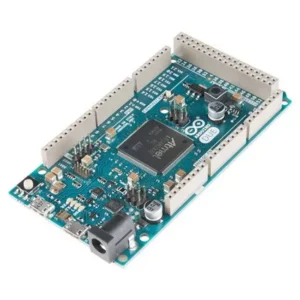The Arduino Leonardo is a microcontroller board based on the ATmega32u4. It has 20 digital input/output pins (of which 7 can be used as PWM outputs and 12 as analog inputs), a 16 MHz crystal oscillator, a micro USB connection, a power jack, an ICSP header, and a reset button. It contains everything needed to support the microcontroller; simply connect it to a computer with a USB cable or power it with a AC-to-DC adapter or battery to get started.
Here you will find the technical specifications for the Arduino Leonardo.
Please note:
If the Mouse or Keyboard library is constantly running, it will be difficult to program your board. Functions such as Mouse.move() and Keyboard.print() will move your cursor or send keystrokes to a connected computer and should only be called when you are ready to handle them.
It is recommended to use a control system to turn this functionality on, like a physical switch or only responding to specific input you can control. When using the Mouse or Keyboard library, it may be best to test your output first using Serial.print(). This way, you can be sure you know what values are being reported. Refer to the Mouse and Keyboard examples for some ways to handle this.
| Board | ||
|---|---|---|
| Name | Arduino® Leonardo | |
| SKU | A000057 | |
| Microcontroller | ||
| ATmega32u4 | ||
| USB connector | ||
| Micro USB (USB-B) | ||
| Pins | ||
| Built-in LED Pin | 13 | |
| Digital I/O Pins | 20 | |
| Analog input pins | 12 | |
| PWM pins | 7 | |
| Communication | ||
| UART | Yes | |
| I2C | Yes | |
| SPI | Yes | |
| Power | ||
| I/O Voltage | 5V | |
| Input voltage (nominal) | 7-12V | |
| DC Current per I/O Pin | 10 mA | |
| Power Supply Connector | Barrel Plug | |
| Clock speed | ||
| Processor | ATmega32U4 16 MHz | |
| Memory | ||
| ATmega32U4 | 2.5KB SRAM, 32KB FLASH, 1KB EEPROM | |
| Dimensions | ||
| Weight | 20 g | |
| Width | 53.3 mm | |
| Length | 68.6 mm | |








There are no reviews yet.